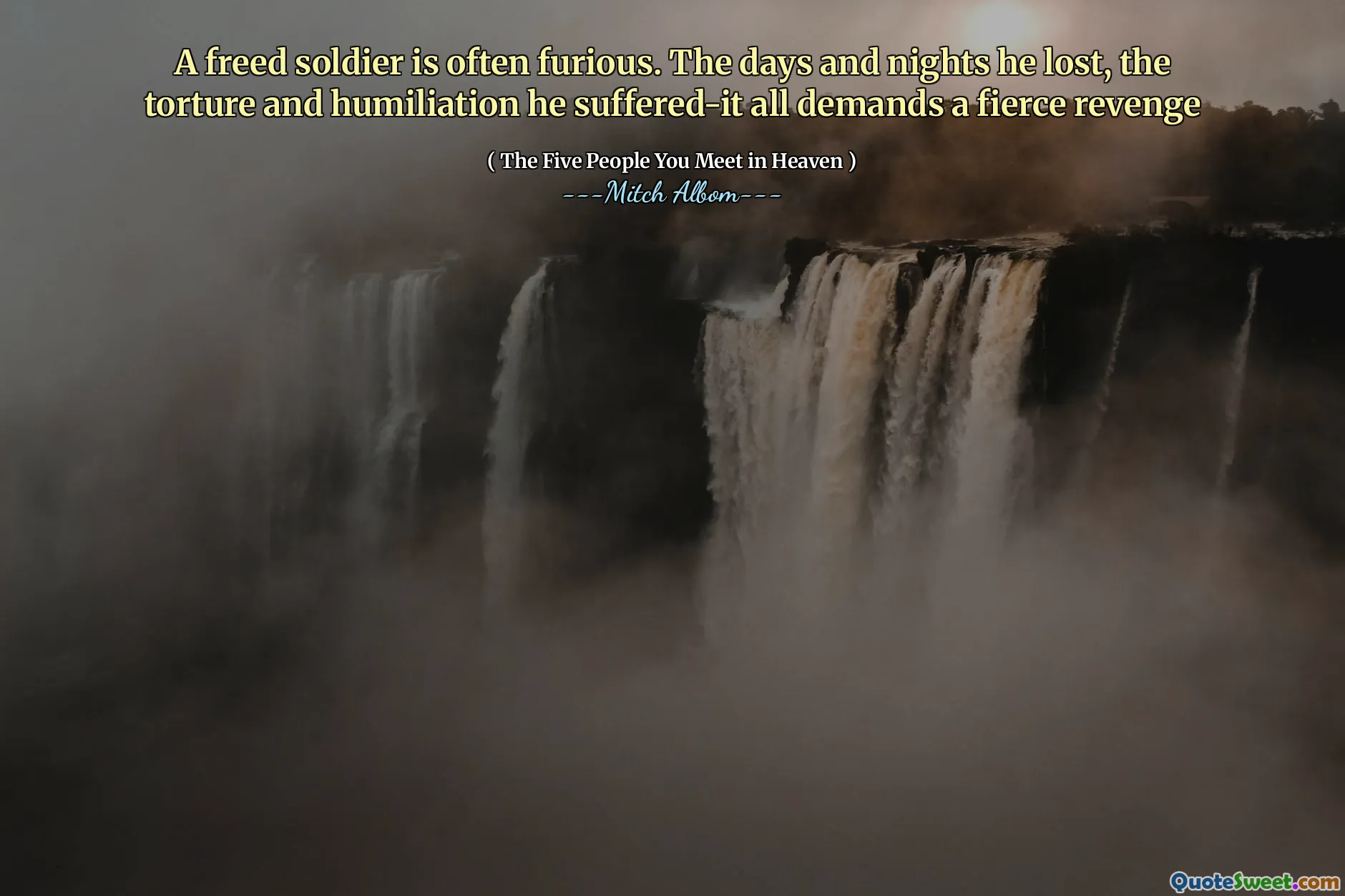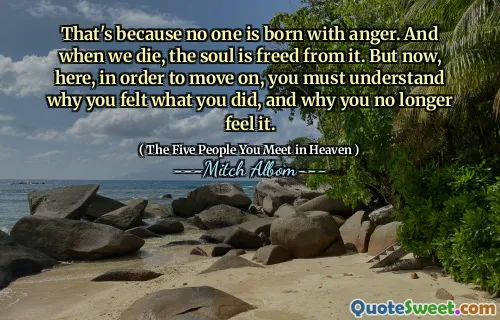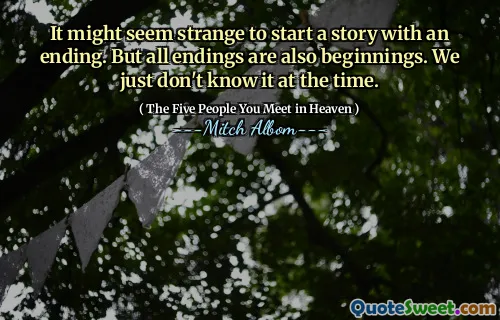
A freed soldier is often furious. The days and nights he lost, the torture and humiliation he suffered-it all demands a fierce revenge
In "The Five People You Meet in Heaven," Mitch Albom explores the complex emotions of a freed soldier who grapples with the aftermath of his experiences. The soldier's fury stems from the significant time he lost during his captivity, as well as the brutal treatment he endured. This anger manifests as a desire for revenge, highlighting how trauma can profoundly affect a person's psyche. The quote underscores the psychological toll of suffering and the deep-seated need for vindication that can arise from such experiences. It reflects a broader theme in the book about healing and understanding one's life and connections after facing hardships. Ultimately, it emphasizes the importance of reconciliation with the past instead of being consumed by anger.
In "The Five People You Meet in Heaven," Mitch Albom explores the complex emotions of a freed soldier who grapples with the aftermath of his experiences. The soldier's fury stems from the significant time he lost during his captivity, as well as the brutal treatment he endured. This anger manifests as a desire for revenge, highlighting how trauma can profoundly affect a person's psyche.
The quote underscores the psychological toll of suffering and the deep-seated need for vindication that can arise from such experiences. It reflects a broader theme in the book about healing and understanding one's life and connections after facing hardships. Ultimately, it emphasizes the importance of reconciliation with the past instead of being consumed by anger.











